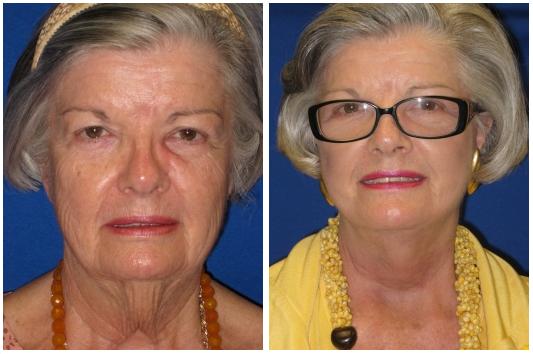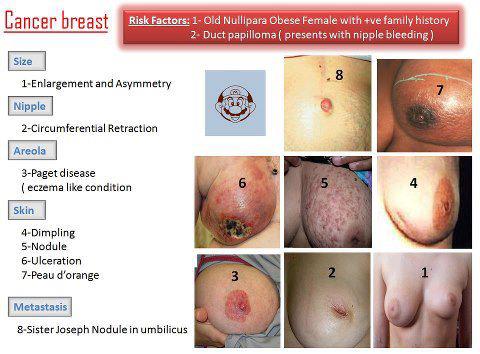Avoid ovarian cancer tests
Tests commonly recommended to screen healthy women for ovarian cancer do more harm than good and should not be performed, a panel of medical experts said Monday.
The screenings -- blood tests for a substance linked to cancer, and ultrasound scans to examine the ovaries -- do not lower the death rate from the disease, and they yield many false-positive results that lead to unnecessary operations with high complication rates, the panel said.
"There is no existing method of screening for ovarian cancer that is effective in reducing deaths," said Dr. Virginia Moyer, chairwoman of the expert panel, the U.S. Preventive Services Task Force. "In fact, a high percentage of women who undergo screening experience false-positive test results and consequently may be subjected to unnecessary harms, such as major surgery."
The advice against testing applies only to healthy women with an average risk of ovarian cancer, not to those with suspicious symptoms or those at high risk because they carry certain genetic mutations or have a family history of the disease.
Other tests rejected, too
The recommendations are just the latest in a series of challenges to cancer screenings issued by the panel, which has also rejected routine PSA screenings for prostate cancer in men and routine mammograms in women younger than 50. The task force is a group of 16 experts, appointed by the government but independent, that makes recommendations about screening tests and other efforts to prevent disease. Its advice is based on medical evidence, not cost.
The recommendations against screening for ovarian cancer were published Monday in Annals of Internal Medicine. The warning is not new -- the panel is reaffirming its own earlier advice.
Although the task force has sometimes drawn fire in the past, particularly with its stand on mammograms, in this case it has plenty of support. Other medical groups, including the American Cancer Society and the American Congress of Obstetricians and Gynecologists, have for years been discouraging tests to screen for ovarian cancer.
But some doctors continue to recommend screening anyway, and patients request it, clinging to the mistaken belief that the tests can somehow find the disease early enough to save lives. A report published in February in Annals of Internal Medicine, based on a survey of 1,088 doctors, said that about a third of them believed the screening was effective and that many routinely offered it to patients. "We are fueled by hope," Moyer said.
Ovarian cancer is among the more rapidly fatal forms of cancer. This year, 22,280 new cases and 15,500 deaths are expected in the United States, according to the American Cancer Society.
In most cases, ovarian cancer is already advanced by the time it is diagnosed. Doctors say the only advice they can give women is not to ignore symptoms that may be the first warning of the disease: persistent bloating, pelvic or abdominal pain, feeling full early while eating and needing to urinate frequently.
For its latest recommendations, the panel relied heavily on a large study published last year in the Journal of the American Medical Association of 78,216 women from ages 55 to 74. Half were screened and half not, and they were followed for 11 to 13 years. The screening consisted of ultrasound exams and blood tests for elevated levels of a substance called CA-125, which can be a sign of ovarian cancer.
Many false positives
The death rate from ovarian cancer was the same in the two groups. But among the women who were screened, nearly 10 percent -- 3,285 women -- had false positive results. Of those women with false positives, 1,080 had surgery, usually to remove one or both ovaries. Only after the operations were done was it clear that they had been unnecessary. And at least 15 percent of the women who had surgery had at least one serious complication.
To find one case of ovarian cancer, 20 women had to undergo surgery.
By DENISE GRADY @ New York Times
The screenings -- blood tests for a substance linked to cancer, and ultrasound scans to examine the ovaries -- do not lower the death rate from the disease, and they yield many false-positive results that lead to unnecessary operations with high complication rates, the panel said.
"There is no existing method of screening for ovarian cancer that is effective in reducing deaths," said Dr. Virginia Moyer, chairwoman of the expert panel, the U.S. Preventive Services Task Force. "In fact, a high percentage of women who undergo screening experience false-positive test results and consequently may be subjected to unnecessary harms, such as major surgery."
The advice against testing applies only to healthy women with an average risk of ovarian cancer, not to those with suspicious symptoms or those at high risk because they carry certain genetic mutations or have a family history of the disease.
Other tests rejected, too
The recommendations are just the latest in a series of challenges to cancer screenings issued by the panel, which has also rejected routine PSA screenings for prostate cancer in men and routine mammograms in women younger than 50. The task force is a group of 16 experts, appointed by the government but independent, that makes recommendations about screening tests and other efforts to prevent disease. Its advice is based on medical evidence, not cost.
The recommendations against screening for ovarian cancer were published Monday in Annals of Internal Medicine. The warning is not new -- the panel is reaffirming its own earlier advice.
Although the task force has sometimes drawn fire in the past, particularly with its stand on mammograms, in this case it has plenty of support. Other medical groups, including the American Cancer Society and the American Congress of Obstetricians and Gynecologists, have for years been discouraging tests to screen for ovarian cancer.
But some doctors continue to recommend screening anyway, and patients request it, clinging to the mistaken belief that the tests can somehow find the disease early enough to save lives. A report published in February in Annals of Internal Medicine, based on a survey of 1,088 doctors, said that about a third of them believed the screening was effective and that many routinely offered it to patients. "We are fueled by hope," Moyer said.
Ovarian cancer is among the more rapidly fatal forms of cancer. This year, 22,280 new cases and 15,500 deaths are expected in the United States, according to the American Cancer Society.
In most cases, ovarian cancer is already advanced by the time it is diagnosed. Doctors say the only advice they can give women is not to ignore symptoms that may be the first warning of the disease: persistent bloating, pelvic or abdominal pain, feeling full early while eating and needing to urinate frequently.
For its latest recommendations, the panel relied heavily on a large study published last year in the Journal of the American Medical Association of 78,216 women from ages 55 to 74. Half were screened and half not, and they were followed for 11 to 13 years. The screening consisted of ultrasound exams and blood tests for elevated levels of a substance called CA-125, which can be a sign of ovarian cancer.
Many false positives
The death rate from ovarian cancer was the same in the two groups. But among the women who were screened, nearly 10 percent -- 3,285 women -- had false positive results. Of those women with false positives, 1,080 had surgery, usually to remove one or both ovaries. Only after the operations were done was it clear that they had been unnecessary. And at least 15 percent of the women who had surgery had at least one serious complication.
To find one case of ovarian cancer, 20 women had to undergo surgery.
By DENISE GRADY @ New York Times




thank for your sharing view
ReplyDelete